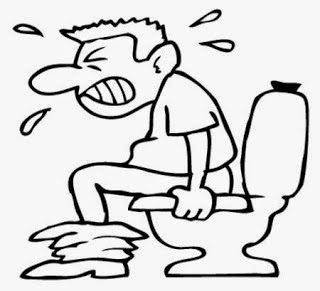Nursing Assessment for Appendicitis (NCP for Appendicitis)
Nursing Assessment for Appendicitis - Nursing Care Plan (NCP) for Appendicitis

Assessment according to Wong (2003), Doenges (1999), Catzel (1995), Betz (2002), among others:
A. Interview
2. Physical examination
3. Examination Support

Assessment according to Wong (2003), Doenges (1999), Catzel (1995), Betz (2002), among others:
A. Interview
- Get a thorough medical history, especially regarding:
- The main complaint: the client will get a pain around the epigastrium radiating to the lower right abdomen. Complaints arising under the right abdominal pain may be a few hours later after the pain in the center or in the epigastrium felt in some time ago. Nature of the complaints of persistent pain is felt, may be lost or there is pain in a long time. Complaints which usually accompanies a client complaining of nausea and vomiting, loss of heat.
- Past medical history: usually associated with health problems the client is now asked of the parents.
- Diet, eating foods low in fiber.
- Elimination habits.
2. Physical examination
- General condition: the client looks sick mild / moderate / severe.
- Circulation: tachycardia.
- Respiratory: Tachypnea, shallow breathing.
- Activity / rest: Malaise.
- Elimination: Constipation in early onset, sometimes diarrhea.
- Abdominal distension, tenderness / pain off, stiffness, decreased or absent bowel sounds.
- Pain / comfort, epigastric and abdominal pain around the umbilicus, the increased severe and localized to the point Mc. Burney, an increase of walking, sneezing, coughing or breathing deeply. Pain in the lower right quadrant because the position of the right leg extension / seated upright position.
- Fever over 38 0C.
- Psychological data seem anxious clients.
- There are changes in pulse rate and breathing.
- Weight as an indicator to determine the drug.
3. Examination Support
- Signs of peritonitis, lower right quadrant. Line drawings of air fluid level in the cecum or ileum.
- Erythrocyte sedimentation rate (ESR) is increased in the state of appendicitis infiltrates.
- Routine urinalysis is important to see what there is infection in the kidney.
- The increase of leukocytes, Neutrophilia, without eosinophils.
- Appendix on barium enema is not filled.
- Ultrasound: fekalit non-calcified, non-perforated appendix, appendix abscess.

Komentar
Posting Komentar